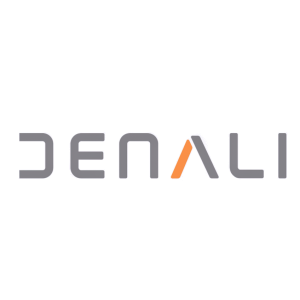Denali Therapeutics Reports First Quarter 2025 Financial Results and Business Highlights Including Completion of BLA Rolling Submission for Tividenofusp Alfa for Hunter Syndrome
Rhea-AI Summary
Positive
- Completion of BLA submission for tividenofusp alfa with potential to be first-in-class therapy for Hunter syndrome
- FDA Breakthrough Therapy Designation received for tividenofusp alfa
- Strong cash position of $1.05 billion
- New clinical biomanufacturing facility opened in Salt Lake City
- Productive FDA discussions for DNL126 under START program
Negative
- Increased net loss to $133.0 million in Q1 2025 from $101.8 million in Q1 2024
- R&D expenses increased to $116.2 million from $107.0 million year-over-year
- DNL343 failed to meet primary endpoint in Phase 2/3 HEALEY ALS Platform Trial
- General and administrative expenses increased to $29.4 million from $25.2 million
News Market Reaction
On the day this news was published, DNLI gained 2.51%, reflecting a moderate positive market reaction.
Data tracked by StockTitan Argus on the day of publication.
SOUTH SAN FRANCISCO, Calif., May 06, 2025 (GLOBE NEWSWIRE) -- Denali Therapeutics Inc. (Nasdaq: DNLI) today reported financial results for the first quarter ended March 31, 2025, and provided business highlights.
“The completion of our BLA submission for tividenofusp alfa represents a pivotal milestone—not only in our commitment to delivering a potentially transformative therapy to individuals living with Hunter syndrome, but also in Denali’s evolution as a fully integrated, late-stage development and commercial organization,” said Ryan Watts, Ph.D., CEO of Denali Therapeutics. “We are now preparing for commercial launch in late 2025 or early 2026. If approved, tividenofusp alfa would be the first FDA-approved enzyme replacement therapy engineered to cross the blood-brain barrier to treat body and brain manifestations of Hunter syndrome. Our broader TransportVehicle-enabled pipeline continues to advance, including the DNL126 program for Sanfilippo syndrome Type A for which we have an ongoing and productive collaboration with the FDA through the START program. Additionally, the recent launch of our in-house clinical biomanufacturing facility in Salt Lake City further enhances our ability to scale efficiently in the U.S. and supply future programs across lysosomal and neurodegenerative diseases.”
First Quarter 2025 and Recent Program Updates
CLINICAL PROGRAMS
Tividenofusp alfa (DNL310, ETV:IDS) for Hunter syndrome (MPS II)
Today, Denali announced completion of submission of a Biologics License Application (BLA) for tividenofusp alfa under the U.S. Food and Drug Administration’s (FDA’s) accelerated approval pathway based on data from the Phase 1/2 study in participants with Hunter syndrome. The submission of the final BLA modules initiates the FDA’s 60-day filing review process and, upon acceptance of the application, the FDA will communicate the Prescription Drug User Fee Act (PDUFA) target action date. In January 2025, the FDA granted Breakthrough Therapy Designation for tividenofusp alfa for the treatment of individuals with Hunter syndrome (MPS II). Tividenofusp alfa was previously granted Fast Track, Orphan Drug and Rare Pediatric Disease designations. In February 2025, at the WORLD Symposium conference, Denali presented the primary analysis of the Phase 1/2 study in 47 participants with Hunter syndrome in the 24-week treatment period and additional long-term follow-up. Denali continues preparation for the commercialization of tividenofusp alfa with a focus on launch readiness across access, education, and community engagement. Denali is conducting the ongoing global Phase 2/3 COMPASS study to support global regulatory approvals.
DNL126 (ETV:SGSH) for Sanfilippo syndrome Type A (MPS IIIA)
In April 2025, Denali announced productive collaboration and discussions with the FDA under the START program (“Support for clinical Trials Advancing Rare Disease Therapeutics”) around the potential for an accelerated development and approval path for DNL126 in the treatment of Sanfilippo syndrome Type A. DNL126 has FDA Fast Track, Orphan Drug, and Rare Pediatric Disease designations. Denali is conducting the Phase 1/2 study of DNL126 in Sanfilippo syndrome Type A.
TAK-594/DNL593 (PTV:PGRN) for GRN-related frontotemporal dementia
Denali and Takeda have an ongoing collaboration for the co-development and co-commercialization of DNL593, a therapeutic candidate engineered for the delivery of progranulin (PGRN) across the blood brain barrier (BBB) and into lysosomes for the treatment of frontotemporal dementia (FTD) associated with a mutation in the granulin (GRN) gene. Denali is conducting the ongoing Phase 1/2 study of DNL593 in FTD-GRN.
BIIB122/DNL151 (small molecule LRRK2 inhibitor) for the treatment of Parkinson’s disease (PD)
Denali and Biogen are jointly developing LRRK2 small molecule inhibitors for Parkinson’s disease (PD), with Biogen leading the global Phase 2b LUMA study evaluating the effect of BIIB122 on disease progression in early-stage PD. In May 2025, Biogen announced the Phase 2b LUMA study was fully enrolled with a readout expected in 2026. Denali is conducting the Phase 2a BEACON study specifically enrolling participants with LRRK2-associated PD to assess how LRRK2 inhibition in this population may impact disease and inform development within and across the broad PD population.
DNL343 (small molecule eIF2B agonist) for the treatment of amyotrophic lateral sclerosis (ALS)
In January 2025, Denali announced topline results that the primary endpoint was not met in Regimen G of the Phase 2/3 HEALEY ALS Platform Trial evaluating DNL343 in the treatment of ALS. In March 2025, Denali provided an update that additional analyses did not demonstrate a treatment effect on neurofilament light (NfL), a biomarker of neuronal damage, over the 24-week, double-blind period and in a subset of participants that completed an additional 28 weeks in the open-label active treatment extension. Based on these outcomes, the active treatment extension in Regimen G was discontinued. Overall, DNL343 was found to be generally well tolerated.
IND-ENABLING STAGE PROGRAMS
Denali is advancing additional candidates across its TransportVehicle™ (TV) franchises, i.e., Enzyme TV (ETV), Antibody TV (ATV), and Oligonucleotide TV (OTV), with programs for lysosomal storage diseases, Alzheimer’s disease and Parkinson’s disease. Programs in the Investigational New Drug (IND)-enabling stage include:
ETV
- DNL952 (ETV:GAA) for Pompe disease
- DNL111 (ETV:GCase) for Parkinson’s disease and Gaucher disease
- DNL622 (ETV:IDUA) for Hurler syndrome (MPS I)
ATV
- DNL921 (ATV:Abeta) targeting amyloid beta for Alzheimer’s disease
OTV
- DNL628 (OTV:MAPT) targeting tau for Alzheimer’s disease
- DNL422 (OTV:SNCA) targeting alpha synuclein for Parkinson’s disease
Corporate Updates
In March, Denali officially opened its clinical biomanufacturing facility in Salt Lake City, Utah, expanding its U.S. manufacturing capabilities and strengthening supply chain control and operational efficiency. Denali has begun manufacturing drug supply for clinical trials as the company expands its TV-enabled therapeutic portfolio.
Participation in Upcoming Investor Conferences
- Bank of America Healthcare Conference 2025, May 13-15 (Las Vegas)
- Jefferies Global Healthcare Conference, June 3-5 (New York City)
- Goldman Sachs 46th Annual Global Healthcare Conference, June 9-11 (Miami)
- BTIG Virtual Biotechnology Conference, July 29
First Quarter 2025 Financial Results
Net loss was
Total research and development expenses were
General and administrative expenses were
Cash, cash equivalents, and marketable securities were approximately
About Denali Therapeutics
Denali Therapeutics is a biopharmaceutical company developing a broad portfolio of product candidates engineered to cross the blood-brain barrier (BBB) for the treatment of neurodegenerative diseases and lysosomal storage diseases. Denali pursues new treatments by rigorously assessing genetically validated targets, engineering delivery across the BBB, and guiding development through biomarkers that demonstrate target and pathway engagement. Denali is based in South San Francisco. For additional information, please visit www.denalitherapeutics.com.
Cautionary Note Regarding Forward-Looking Statements
This press release contains forward-looking statements within the meaning of the Private Securities Litigation Reform Act of 1995. Forward-looking statements expressed or implied in this press release include, but are not limited to, statements regarding expectations regarding Denali’s TV platform and its therapeutics and commercial potential; statements made by Denali’s Chief Executive Officer; plans, timelines, and expectations relating to DNL310, including enrollment in the ongoing global Phase 2/3 COMPASS study and the likelihood of global approvals, the timing of planned regulatory filings, and the timing, likelihood, and scope of regulatory approvals and commercial launch; plans, timelines, and expectations related to DNL126, including enrollment in the ongoing Phase 1/2 study, planned engagement with the FDA, and the likelihood and scope of regulatory approvals; plans regarding DNL593 and the ongoing Phase 1/2 study; plans, timelines, and expectations regarding DNL151, including with respect to the ongoing Phase 2b LUMA and Phase 2a BEACON studies; plans and expectations for Denali’s preclinical programs, including the timing of advancement to clinical studies; the impact and scalability of Denali’s in-house manufacturing operations; Denali’s future operating expenses and anticipated cash runway; and Denali’s participation in upcoming investor conferences. All drugs currently being developed by Denali are investigational and have not received regulatory approval for any indication. Actual results are subject to risks and uncertainties and may differ materially from those indicated by these forward-looking statements as a result of these risks and uncertainties, including but not limited to, risks related to: the impact of adverse economic conditions, tariffs, and inflation on Denali’s business and operations; the occurrence of any event, change, or other circumstance that could give rise to the termination of Denali’s agreements with Sanofi, Takeda, Biogen, or other collaborators; Denali’s transition to a late-stage clinical drug development company; Denali’s and its collaborators’ ability to complete the development and, if approved, commercialization of its product candidates; Denali’s and its collaborators’ ability to enroll patients in its ongoing and future clinical trials; Denali’s reliance on third parties for the manufacture and supply of its product candidates for clinical trials; Denali’s dependence on successful development of its blood-brain barrier platform technology and its programs and product candidates; Denali’s and its collaborators’ ability to conduct or complete clinical trials on expected timelines; the risk that preclinical profiles of Denali’s product candidates may not translate in clinical trials; the potential for clinical trials to differ from preclinical, early clinical, preliminary or expected results; the risk of significant adverse events, toxicities, or other undesirable side effects; the uncertainty that product candidates will receive regulatory approval necessary to be commercialized; Denali’s ability to continue to create a pipeline of product candidates or commercialize products; developments relating to Denali’s competitors and its industry, including competing product candidates and therapies; Denali’s ability to obtain, maintain, or protect intellectual property rights related to its product candidates; implementation of Denali’s strategic plans for its business, product candidates, and blood-brain barrier platform technology; Denali’s ability to obtain additional capital to finance its operations, as needed; Denali’s ability to accurately forecast future financial results and hedge against financial risk in the current environment; and other risks and uncertainties, including those described in Denali’s most recent Annual Report on Forms 10-K filed with the Securities and Exchange Commission (SEC) on February 27, 2025, and Denali’s future reports to be filed with the SEC. Denali does not undertake any obligation to update or revise any forward-looking statements, to conform these statements to actual results, or to make changes in Denali’s expectations, except as required by law.
Denali Therapeutics Inc.
Condensed Consolidated Statements of Operations
(Unaudited)
(In thousands, except share and per share amounts)
| Three Months Ended March 31, | |||||||
| 2025 | 2024 | ||||||
| Operating expenses: | |||||||
| Research and development | $ | 116,227 | $ | 107,016 | |||
| General and administrative | 29,353 | 25,236 | |||||
| Total operating expenses | 145,580 | 132,252 | |||||
| Gain from divestiture of small molecule programs | — | 14,537 | |||||
| Loss from operations | (145,580 | ) | (117,715 | ) | |||
| Interest and other income, net | 12,610 | 15,913 | |||||
| Net loss | $ | (132,970 | ) | $ | (101,802 | ) | |
| Net loss per share, basic and diluted | $ | (0.78 | ) | $ | (0.68 | ) | |
| Weighted average number of shares outstanding, basic and diluted | 171,222,030 | 149,404,188 | |||||
Denali Therapeutics Inc.
Condensed Consolidated Balance Sheets
(Unaudited)
(In thousands)
| March 31, 2025 | December 31, 2024 | ||||
| Assets | |||||
| Current assets: | |||||
| Cash and cash equivalents | $ | 56,947 | $ | 174,960 | |
| Short-term marketable securities | 760,979 | 657,371 | |||
| Prepaid expenses and other current assets | 60,712 | 32,105 | |||
| Total current assets | 878,638 | 864,436 | |||
| Long-term marketable securities | 235,844 | 359,373 | |||
| Property and equipment, net | 57,765 | 55,236 | |||
| Finance lease right-of-use asset | 50,199 | 47,533 | |||
| Operating lease right-of-use asset | 21,963 | 22,861 | |||
| Other non-current assets | 26,934 | 24,741 | |||
| Total assets | $ | 1,271,343 | $ | 1,374,180 | |
| Liabilities and stockholders’ equity | |||||
| Current liabilities: | |||||
| Accounts payable | $ | 8,458 | $ | 11,137 | |
| Accrued compensation | 7,655 | 24,728 | |||
| Accrued clinical and other research & development costs | 27,908 | 22,822 | |||
| Accrued manufacturing costs | 14,579 | 12,779 | |||
| Operating lease liability, current | 8,585 | 8,308 | |||
| Deferred research and development funding liability, current | 17,338 | 14,129 | |||
| Other accrued costs and current liabilities | 7,354 | 8,305 | |||
| Total current liabilities | 91,877 | 102,208 | |||
| Operating lease liability, less current portion | 34,449 | 36,673 | |||
| Finance lease liability, less current portion | 5,598 | 5,615 | |||
| Deferred research funding and development liability, less current portion | 16,733 | — | |||
| Total liabilities | 148,657 | 144,496 | |||
| Total stockholders’ equity | 1,122,686 | 1,229,684 | |||
| Total liabilities and stockholders’ equity | $ | 1,271,343 | $ | 1,374,180 | |
Investor Contact:
Laura Hansen, Ph.D.
Vice President, Investor Relations
hansen@dnli.com
(650) 452-2747
Media Contact:
Rich Allan
FGS Global
Rich.Allan@fgsglobal.com
(503) 851-0807








